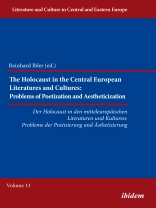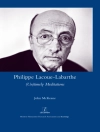This volume addresses a problem of high controversy: Relating the Holocaust to poetic and aesthetic phenomena has often been seen as a taboo, as only authentic testimonies, documents, or at least ‘unliterary’, prosaic approaches were considered appropriate for dealing with the topic. However, from the very beginning of Holocaust literature and culture, there were tendencies towards literarization, poetization, and ornamentalization. Nowadays, aesthetic approaches—also in provocative, taboo-breaking ways—are more and more regarded as important instruments to evoke the attention required for keeping the cataclysm in the collective memory.
The contributions of the volume using examples predominantly from Polish, Czech, and German Holocaust literature and culture focus on selected aspects of this complex of problems, such as: poetry of concentration camp detainees; lyrical poetry about the Holocaust; poetical tendencies in narrative literature and drama; ‘ornamental prose’ about the Holocaust; devices and functions of aestheticization in Holocaust literature and culture.
Tentang Penulis
Prof. Dr. Reinhard Ibler, born in 1952, studied West and South Slavonic philology and Russian philology at the universities of Regensburg and Prague. He has worked as a full professor of Slavonic literary studies at the universities of Magdeburg (1994-1999), Marburg (1999-2006), and Giessen (since 2006). His main interests are Czech, Russian, and Polish literature of the 19th and 20th century, comparative Slavonic studies, literary theory, genre theory, poetics of the literary cycle, and Holocaust literature. In 2010, he initiated an international cooperation in the field of Holocaust literature and culture in which the universities of Giessen, Łódź, Poznań, and Prague are participating.












